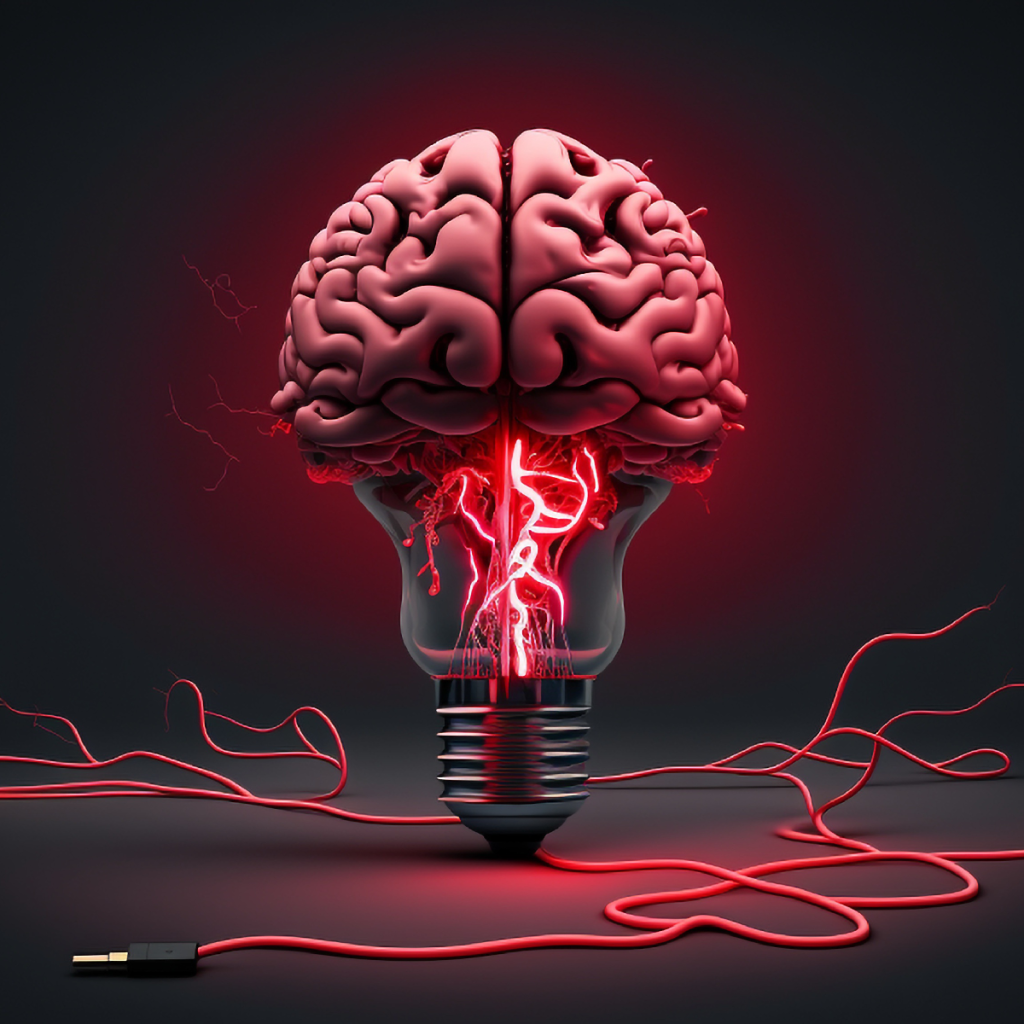Can Nootropics Enhance Learning Capacity?
08/08/2023

Nootropics have been gaining popularity as cognitive enhancers believed to improve learning capacity. In this article, we will explore what nootropics are, the science behind their potential effectiveness, the different types available, and the ongoing debate surrounding their ability to enhance learning. We will also discuss potential risks and side effects associated with their use.

Understanding Nootropics: A Brief Overview
Before delving into the details, it is essential to understand what nootropics actually are. Nootropics, also known as smart drugs or cognitive enhancers, are substances that are claimed to improve cognitive functions such as memory, focus, creativity, and learning capacity. These substances can include natural compounds, synthetic drugs, or even prescription medications.
What are Nootropics?
Nootropics can be broadly defined as substances that enhance brain function without causing significant side effects or addiction. They work by targeting different neurochemical systems in the brain, affecting neurotransmitters, enzymes, and hormones, to improve cognitive processes.
The History and Evolution of Nootropics
The concept of nootropics was first introduced in the 1960s by a Romanian psychologist and chemist named Corneliu Giurgea. He developed the first nootropic drug, Piracetam, which sparked the interest in cognitive enhancement. Since then, the field has expanded, and numerous nootropic substances have been discovered and developed.
Over the years, researchers and scientists have dedicated their efforts to understanding the mechanisms behind the effects of nootropics. They have discovered that these substances can modulate various neurotransmitter systems, such as acetylcholine, glutamate, dopamine, and serotonin, which play crucial roles in cognitive function.
Furthermore, the history of nootropics is intertwined with the advancements in neuropharmacology and neurobiology. As our understanding of the brain and its complex processes deepens, so does our knowledge of how these substances can enhance cognitive abilities.
Today, nootropics have evolved beyond the initial compounds and now include a wide range of substances, including herbal extracts, vitamins, minerals, and even experimental drugs that show potential for cognitive enhancement. These substances are often used by individuals seeking to boost their productivity, improve academic performance, or simply enhance their overall cognitive abilities.
It is important to note that while nootropics hold promise in improving cognitive function, their effects may vary from person to person. Factors such as genetics, lifestyle, and overall health can influence how an individual responds to these substances.
As the field of nootropics continues to advance, researchers are exploring new avenues for cognitive enhancement. They are investigating novel compounds, developing targeted delivery systems, and exploring the potential synergistic effects of combining different substances.
In conclusion, nootropics offer an intriguing opportunity to enhance cognitive abilities and unlock the full potential of the human brain. However, it is crucial to approach their use with caution, ensuring that they are used responsibly and under the guidance of healthcare professionals.
The Science Behind Nootropics and Learning
How Nootropics Work in the Brain
Nootropics, also known as "smart drugs," are substances that are believed to enhance cognitive function and improve learning and memory. These compounds exert their effects on brain function through various mechanisms, making them a topic of great interest among researchers and individuals seeking cognitive enhancement.

One of the ways in which nootropics work is by enhancing the production and release of neurotransmitters, such as acetylcholine. Acetylcholine plays a crucial role in learning and memory processes, and by increasing its levels, nootropics can potentially improve cognitive function. By targeting specific receptors in the brain, these substances can enhance the signaling pathways involved in memory formation and retrieval.
In addition to modulating neurotransmitters, some nootropics have been found to improve blood flow and oxygen supply to the brain. This is important because the brain requires a constant supply of oxygen and nutrients to function optimally. By increasing blood flow to the brain, nootropics can support neuronal health and function, potentially enhancing cognitive performance.
Furthermore, certain nootropics have been found to enhance neuroplasticity, which refers to the brain's ability to form new neural connections and reorganize itself. Neuroplasticity is crucial for learning and memory formation, as it allows the brain to adapt and change in response to new information and experiences. By promoting neuroplasticity, nootropics may facilitate the learning process and improve memory retention.
Nootropics and Memory Enhancement
Memory enhancement is one of the primary reasons why individuals turn to nootropics. Many nootropics have shown promising effects on memory consolidation, retrieval, and overall cognitive performance.
For example, Bacopa monnieri, a herb traditionally used in Ayurvedic medicine, has been found to enhance memory and cognitive function. It is believed to work by increasing the release of acetylcholine in the hippocampus, a brain region involved in memory formation. By boosting acetylcholine levels, Bacopa monnieri may improve memory consolidation and retrieval.
Ginkgo biloba, another popular nootropic, has been used in traditional Chinese medicine for centuries to enhance memory and cognitive function. It is thought to improve blood flow to the brain, thereby supporting neuronal health and function. Additionally, Ginkgo biloba has antioxidant properties that may protect the brain from oxidative stress, which can impair cognitive function.
It is important to note that the effects of nootropics on memory enhancement can vary among individuals. Factors such as genetics, baseline cognitive function, and overall health can influence an individual's response to these substances. Furthermore, more research is needed to fully understand the potential benefits and mechanisms of action for each nootropic compound.
In conclusion, nootropics have gained significant attention for their potential to enhance learning and memory. By targeting various mechanisms in the brain, such as neurotransmitter modulation, improved blood flow, and enhanced neuroplasticity, these substances may offer promising benefits for cognitive function. However, it is essential to approach their use with caution and consult with a healthcare professional, as individual responses to nootropics can vary, and more research is needed to fully understand their long-term effects.
Types of Nootropics and Their Potential Benefits
Natural vs. Synthetic Nootropics
Nootropics, also known as cognitive enhancers or smart drugs, can be categorized into natural and synthetic compounds. Natural nootropics are often derived from plants or herbs and are generally considered safe for consumption. These substances have been used for centuries in traditional medicine systems around the world. Examples of natural nootropics include caffeine, green tea extract, and certain adaptogenic herbs like Rhodiola rosea.
Synthetic nootropics, on the other hand, are artificially created compounds that are designed to target specific cognitive functions. These substances are typically more potent and may require a prescription. One well-known synthetic nootropic is Modafinil, which is used to promote wakefulness and enhance cognitive performance in individuals with sleep disorders or conditions such as narcolepsy.
Both natural and synthetic nootropics have their own unique benefits and potential risks. It is important to carefully consider the potential effects and consult with a healthcare professional before incorporating any nootropic into your routine.
Popular Nootropics and Their Effects
There are numerous popular nootropics available in the market today, each with its own set of purported benefits. These substances have gained popularity among students, professionals, and individuals seeking cognitive enhancement. Some commonly used nootropics include:
- Piracetam: Known as the first nootropic compound, Piracetam is believed to enhance memory and learning capacity. It works by increasing the activity of certain neurotransmitters in the brain, improving cognitive function and mental performance.
- Alpha-GPC: This choline supplement is thought to support cognitive function and improve memory. Choline is an essential nutrient that plays a crucial role in brain health and the production of acetylcholine, a neurotransmitter involved in memory and learning.
- L-Theanine: Found in green tea, L-Theanine is known for promoting relaxation and focus. It has been shown to increase alpha brain waves, which are associated with a state of relaxed alertness. L-Theanine also has a synergistic effect with caffeine, reducing the jitters and promoting a calm yet focused mental state.
- Modafinil: Mainly prescribed for sleep disorders such as narcolepsy, Modafinil is also reported to enhance alertness and cognitive performance in healthy individuals. It works by increasing dopamine and norepinephrine levels in the brain, promoting wakefulness and improving executive functions.
These are just a few examples of popular nootropics, and there are many others available on the market. It is important to note that individual responses to nootropics may vary, and what works for one person may not work the same way for another. It is crucial to consult with a healthcare professional before using any nootropic, especially synthetic compounds or prescription medications.
Furthermore, it is essential to consider the potential side effects and interactions with other medications or supplements. Some individuals may experience headaches, digestive issues, or insomnia when taking certain nootropics. It is always best to start with a low dosage and gradually increase as needed while closely monitoring any adverse effects.
In conclusion, nootropics offer a fascinating area of study and potential for cognitive enhancement. However, it is important to approach their use with caution and seek professional guidance to ensure safety and effectiveness.
The Debate: Do Nootropics Really Enhance Learning?
Supporting Research and Studies
While there is anecdotal evidence and user experiences suggesting the positive effects of nootropics on learning, the scientific evidence is still limited. Some studies have shown potential benefits, especially for specific compounds, but more research is needed to establish the true effectiveness and safety of nootropics.
Skepticism and Criticisms
As with any emerging field, there are skeptics who question the claims of nootropics. Critics argue that the current research is inconclusive and that the long-term effects and potential risks are not well understood. They also highlight the lack of regulations and potential for misuse.
It is crucial to approach the use of nootropics with caution and skepticism, considering individual differences and potential interactions with existing medications.
Potential Risks and Side Effects of Nootropics
Safety Concerns and Warnings

Like any substance that affects brain function, nootropics can have potential risks and side effects. Common side effects may include headaches, gastrointestinal issues, insomnia, and mood changes. Additionally, some synthetic nootropics may have specific warnings and precautions, especially if used without medical supervision.
It is crucial to research the specific nootropic compound and consult with a healthcare professional before starting any supplementation regimen.
Long-Term Effects of Nootropics
Due to the limited research in this field, the long-term effects of nootropic use are not well understood. Some concerns revolve around the potential for addiction, dependence, and cognitive decline over time. It is essential to prioritize brain health and consider alternative methods such as a healthy lifestyle, adequate sleep, and cognitive exercises to support learning capacity.
In conclusion, while nootropics have gained attention as potential cognitive enhancers, the current scientific evidence is still inconclusive. The field of nootropics is dynamic and continuously evolving, with promising research being conducted. As with any supplement or medication, it is essential to approach their use with caution, consulting with healthcare professionals, and considering potential risks and individual differences. Moreover, prioritizing overall brain health through lifestyle factors should not be overlooked when aiming for optimal learning capacity.

 Back to Blog
Back to Blog